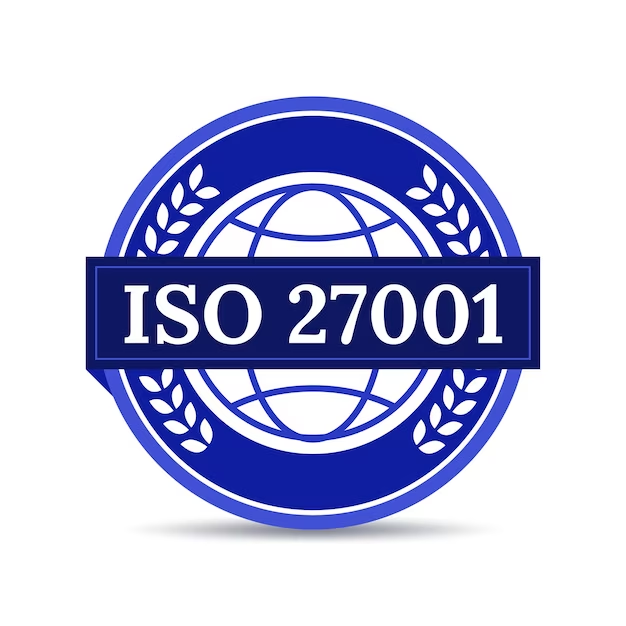I. Introduction
In today’s digital age, information is one of the most valuable assets an organization can possess. With increasing cyber threats and stringent data protection regulations, businesses must prioritize securing sensitive data. ISO 27001 is the gold standard for information security, providing a comprehensive framework for establishing, implementing, and maintaining an Information Security Management System (ISMS). However, effective implementation requires proper understanding and skills, which can be gained through ISO 27001 training. This article delves into the essence of iso 27001 eğitimi, its training importance, and its transformative benefits for individuals and organizations.
II. What is ISO 27001?
ISO 27001 is an internationally recognized standard that outlines the requirements for an ISMS. It helps organizations protect their data, reduce risks, and ensure business continuity. The standard is built around a systematic approach to managing sensitive company information so that it remains secure. It encompasses risk management, access control, incident management, and compliance with regulatory requirements.
Introduced by the International Organization for Standardization (ISO) and the International Electrotechnical Commission (IEC), ISO 27001 is applicable across industries, making it a universal benchmark for information security. By achieving ISO 27001 certification, organizations demonstrate their commitment to protecting information assets and adhering to best practices.
III. Why is ISO 27001 Training Essential?
ISO 27001 training plays a crucial role in equipping individuals with the knowledge and skills needed to implement and manage an ISMS effectively. Its importance lies in several factors:
- Understanding the Framework: Training provides a deep understanding of iso 27001 eğitimi requirements, helping participants navigate its complexities.
- Skill Development: Professionals learn how to conduct risk assessments, implement controls, and ensure compliance.
- Compliance Readiness: Organizations must comply with data protection laws like GDPR. ISO 27001 training ensures teams understand and fulfill these obligations.
- Fostering a Security Culture: Training instills a security-first mindset, promoting proactive risk management across the organization.
- Certification Preparation: For individuals and companies aiming to achieve iso 27001 eğitimi certification, training provides the foundation needed to succeed during audits.
IV. What Does ISO 27001 Training Cover?
ISO 27001 training courses are designed to address various aspects of information security and certification processes. Key topics include:
- Introduction to ISO 27001: Understanding the scope, objectives, and principles of the standard.
- Information Security Management Systems (ISMS): Exploring the structure and purpose of an ISMS and how it aligns with organizational goals.
- Risk Assessment and Treatment: Identifying and evaluating potential security risks, and implementing appropriate controls.
- Annex A Controls: Learning about the 114 controls specified in Annex A of iso 27001 eğitimi, including policies, physical security, and access management.
- Internal Auditing: Techniques for planning, conducting, and reporting ISMS audits to ensure compliance.
- Continuous Improvement: Guidance on maintaining and improving ISMS effectiveness post-certification.
Courses often combine theoretical instruction with practical exercises, case studies, and role-playing scenarios to ensure a comprehensive learning experience.
V. Who Should Attend ISO 27001 Training?
ISO 27001 training is beneficial for a wide range of professionals, including:
- Information Security Managers: Responsible for developing and maintaining an organization’s ISMS.
- IT Professionals: Tasked with implementing and managing IT infrastructure security.
- Compliance Officers: Ensuring adherence to legal, regulatory, and contractual requirements.
- Internal Auditors: Assessing the organization’s compliance with iso 27001 eğitimi standards.
- Senior Management: Decision-makers overseeing the organization’s security strategy.
- Individuals Seeking Certification: Professionals aiming to enhance their credentials in information security.
Whether you’re a seasoned expert or new to information security, iso 27001 eğitimi provides valuable insights and skills tailored to your role.
VI. Benefits of ISO 27001 Certification for Organizations and Individuals
For Organizations:
- Improved Security Posture: A robust ISMS minimizes vulnerabilities, protecting sensitive data from breaches.
- Regulatory Compliance: ISO 27001 helps organizations meet international standards and local regulations, such as GDPR or CCPA.
- Enhanced Reputation: Certification demonstrates a commitment to information security, building trust with clients and partners.
- Risk Mitigation: By proactively identifying and addressing risks, businesses reduce the likelihood of costly incidents.
- Market Opportunities: Certification opens doors to new markets and contracts, especially with clients requiring stringent data protection.
For Individuals:
- Career Advancement: ISO 27001 certification enhances job prospects and earning potential.
- Specialized Expertise: Professionals gain practical knowledge of managing ISMS and auditing processes.
- Professional Recognition: Certified individuals are seen as leaders in the field of information security.
- Broader Opportunities: ISO 27001 expertise is applicable across industries, from finance and healthcare to technology and retail.
VII. How to Choose the Right ISO 27001 Training Program
Selecting the right training program is critical to gaining meaningful knowledge and skills. Consider the following factors:
- Accreditation: Ensure the course is offered by a recognized and reputable organization.
- Content Relevance: Look for a curriculum that aligns with your career goals and organizational needs.
- Experienced Trainers: Choose programs led by industry experts with practical experience.
- Mode of Delivery: Decide between in-person, online, or hybrid formats based on your learning preferences.
- Practical Components: Opt for courses offering hands-on exercises, case studies, and real-world scenarios.
- Post-Training Support: Check if the provider offers additional resources, such as study guides or exam prep tools.
By evaluating these factors, you can find a program that meets your unique requirements.
VIII. Preparing for ISO 27001 Training and Certification
Preparation can help you make the most of your training experience:
- Familiarize Yourself with ISO 27001: Review basic concepts and terminology related to the standard.
- Assess Organizational Context: Understand your company’s current ISMS, security policies, and risks.
- Set Clear Objectives: Identify specific skills or knowledge you wish to gain from the training.
- Engage Actively: Participate in discussions, ask questions, and collaborate with peers during the course.
- Practice Continuously: Apply learned concepts to your work environment to reinforce understanding.
Preparation not only enhances your learning experience but also positions you for success in certification audits.
IX. Conclusion
ISO 27001 training is an invaluable resource for organizations and individuals striving to secure information assets in a dynamic digital landscape. By mastering the principles of ISO 27001 and gaining hands-on experience through training, businesses can build robust ISMS frameworks that protect data, reduce risks, and enhance reputation. For individuals, the certification opens doors to exciting career opportunities and establishes expertise in the growing field of information security. Embrace Iiso 27001 eğitimi today to ensure a safer and more resilient future for your organization and career.











Leave a Reply